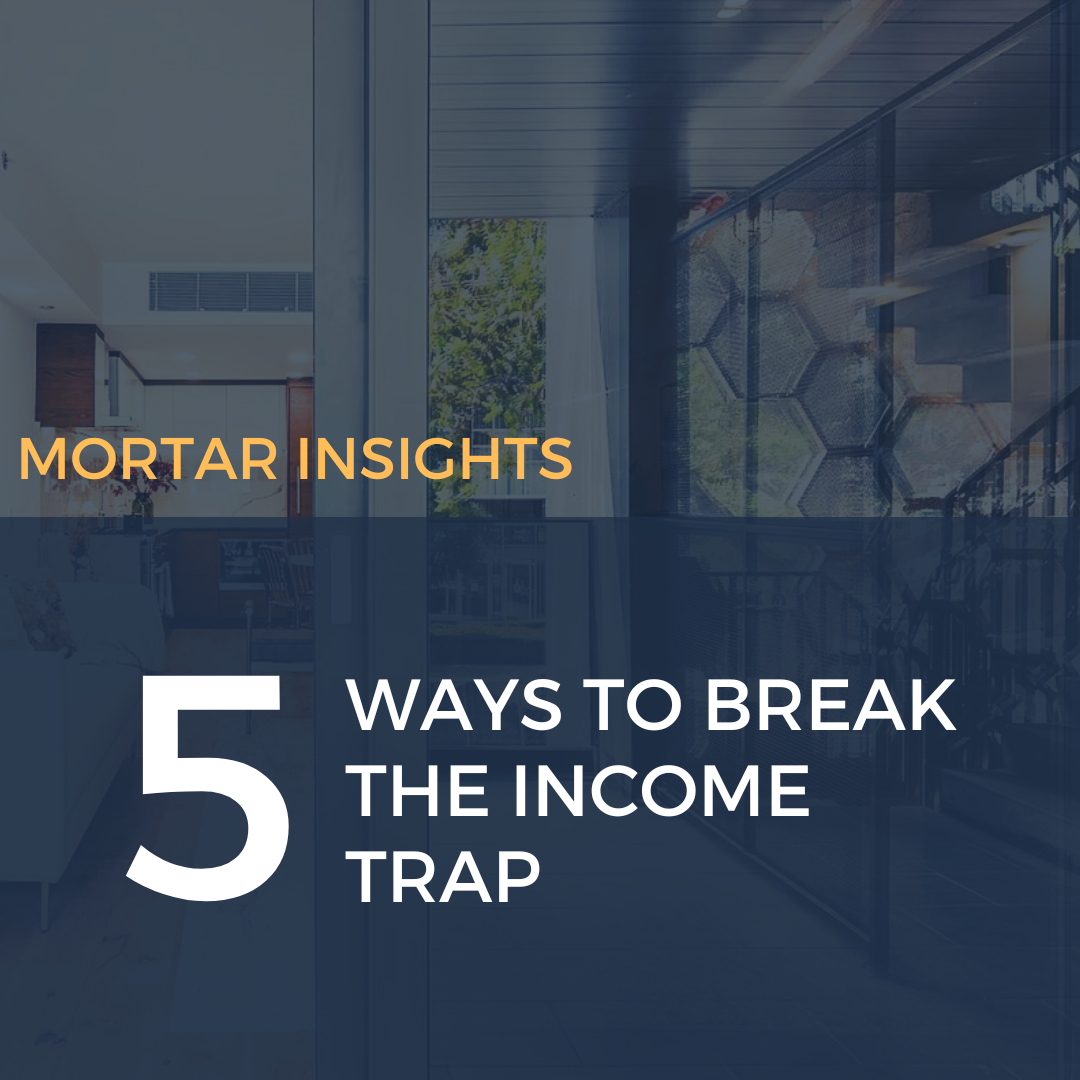
5 Ways to Break the Income Trap
Since my kids were young, financial education has always been a priority in our house. Each of them picked it up differently — some earlier, some later — but all eventually learned that money isn’t just about earning it, it’s about understanding how it works.
I read a few good books along the way (The Bank of Dad among them), some focused on teaching compound interest and the importance of saving early — but most repeated the same old idea: the difference between being rich and being wealthy.
Let’s be honest — that topic’s been written about, tweeted about, and beaten to death. Still, as much as the buzzword version of it makes me cringe, there’s a reason it keeps resurfacing: it’s simple, accurate, and true.
We all want to get better at managing money — or, in my case, teach my kids too. We read articles like this one searching for that one idea or tip that moves the needle. That curiosity alone separates those chasing income from those quietly building wealth.
Most high-earning professionals, including physicians, earn more than enough to be considered “rich.” Yet even with strong incomes, many still feel financial pressure — juggling families, loans, taxes, lifestyle costs, and the constant trade of time for money.
We’ve mastered the art of earning, but not the science of wealth. These five steps can help bridge that gap.
- Recognize the Catch
Not to date myself too much — but back in the ’90s, when I was in college, one of the first “money” books I read was Rich Dad, Poor Dad. Though wildly outdated by today’s standards, its core concept still resonates — and it marked a turning point in my own financial mindset: perception.
I remember finishing that book and realizing that no matter what my starting salary was or what firm I joined after graduation, I’d still be stuck grinding hours, trading time for money. The path I was preparing for led to stability — but not freedom.
High income and savings provide income security, but not freedom. When your earning power depends on showing up — whether it’s at the office, in meetings, or with patients — your financial engine stops the moment you do.
It’s a familiar story across occupations. Pick a profession — a consultant, AI programmer, banker, attorney, or physician might all earn $500,000 a year, but after taxes, mortgage payments, tuition, and lifestyle reinvestment, very little truly compounds. The pattern repeats each year until retirement, when savings and market returns replace active income.
- Understand the Difference
If you’re an experienced investor, you’ve probably already figured this one out. But if you’re new to the concept, maybe you haven’t.
The “rich” focus on earning more. The “wealthy” focus on owning more.
Corny sounding? Absolutely. Is it true? Also, yes.
Rich means high income. Wealthy means control — of your time, decisions, and future. It’s the quiet accumulation of assets that work while you don’t.
When I was younger, this question from the Rich Dad books stuck with me for two decades: “If my income stopped tomorrow, how long could I maintain my lifestyle?”
For most, the answer is months — not years. For the wealthy, it’s indefinite. That’s the difference.
- Follow the Formula
Financial independence is built when income is converted into assets that compound quietly in the background. Once you build the framework and system, the formula repeats and multiplies indefinitely.
High earners like doctors have a rare advantage — substantial earning power that can seed ownership early. The challenge is directing it into the right vehicles:
- Cash-Flowing Assets: Real estate, private businesses, or income-producing investments.
- Time: The longer your capital compounds, the more exponential the growth.
- Tax Efficiency: Use 401(k)s, cost segregation, depreciation, and SDIRAs to minimize drag on returns.
For me, when I was trying to plan my financial goals right out of college, I was always irritated by people who told me to “just work harder and make more money.” It felt lazy and unhelpful — as if effort alone were the strategy. So, with my first job out of school, I decided to take a different approach. I automatically moved part of my salary into a savings account before I even had the chance to spend it. It wasn’t much, but it got me moving in the right direction — and more importantly, it created the habit of paying myself first.
- Create Your Plan
Moving from income to wealth doesn’t require a career change — it requires deliberate allocation.
- Stabilize Cash Flow: Automate savings and eliminate high-interest debt.
- Convert Income into Ownership: Redirect part of your income into assets that pay you back.
- Optimize Taxes: Use pre-tax vehicles and depreciation to compound faster.
- Protect What You Build: Trusts, insurance, and estate planning preserve your trajectory.
This transition doesn’t happen overnight — but it’s measurable. You’ll have good days and bad, but each dollar redirected from spending to ownership moves you closer to financial autonomy.
- Shift Your Objective and Have an Exit
Wealth isn’t built by working harder — it’s built by making your money work longer than you do.
That’s the objective shift: you stop chasing income and start engineering systems that compound, protect, and eventually replace your active earnings. Then ask yourself: What’s my ultimate financial exit — and does this path get me there?
Good luck!
– Anthony

